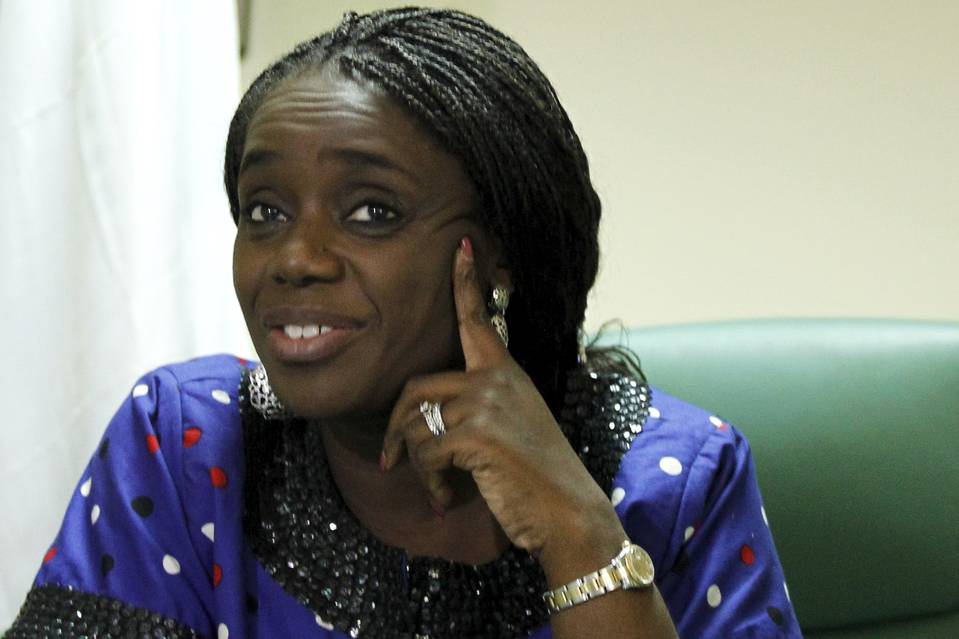- Federal Government Saved N143bn in 2016
The Presidency also said that 11 persons believed to be members of a syndicate responsible for the presence of 50,000 ghost workers on the Federal Government’s payroll had been handed over to the Economic and Financial Crimes Commission for further investigation and prosecution.
The Senior Special Assistant to the President on Media and Publicity, Garba Shehu, disclosed this in a statement made available to journalists.
Shehu said although the 21 Chibok girls released recently by the Boko Haram sect had been adopted by the Federal Government, many local and international interests had expressed the desire to educate them for free.
He said, “A black American billionaire, Mr. Robert Smith, who is currently sponsoring the education of 24 girls from Chibok, among them the first set of escapees from Boko Haram at the American University of Nigeria, Yola has offered to pay for the education of the 21 released through negotiations.
“He is offering to take responsibility for all the others who will hopefully be eventually set free. The Murtala Muhammed Foundation in the country is equally interested,” he said.
Shehu added that some of the suspects involved in the ghost workers scam were already undergoing trial.
He explained that the Efficiency Unit of the Federal Ministry of Finance created by the present administration was able to uncover the 50,000 ghost workers and saved the nation of N13bn monthly during the year.
Shehu said the amount was taken off the government’s payroll from February to December.
The presidential spokesman said, “The flagship programme of the Muhammadu Buhari administration to rid the system of fraud and instill good governance is on course.
“Through a notable initiative, the Efficiency Unit of the Federal Ministry of Finance, the government has embarked on the continuous auditing of the salaries and wages of government departments.
“When the committee was constituted in February 2016, the Federal Government’s monthly salary bill was N151bn excluding pensions.
“Now, the monthly salary warrant is N138bn, excluding pensions, which means that the government is making a monthly saving of about N13bn. That is from February 2016 to date.”
Shehu added that the pension bill which was N15.5bn monthly as of February had been reduced to N14.4bn.
He said the government was making an average monthly saving of about N1.1bn on the pension bill.
Responding to complaints by some of the parents of the 21 Chibok girls that they did not have enough room for interaction with their daughters brought home for Christmas by the Department of state Services, Shehu admitted that there were some hitches arising from a lack of understanding of the objective of the trip by some security operatives.
He explained that following the complaints, a directive had been given from the headquarters of the DSS for the access by the parents to be eased.
“If the situation persists, please let us know so that the higher authorities will make a further intercession,” he said.
Shehu also allayed the fears of many members of the ruling All Progressives Congress concerning board appointments.
He assured the agitated members that the process would be fully back on track at the beginning of 2017.
He said, “You know that the reconstitution began methodically, from sector to sector. You should expect that to resume at the beginning of the New Year. The President has given directions on what to do.”
On the agricultural programmes of the administration, Shehu said the President’s persistent call for a return to farming was yielding good results.
He added, “The talk about agriculture has driven people to the farm. This year, there is a huge boom in the rural economy. We have witnessed an excellent harvest. Farmers are getting value for their output.
“What has encouraged the farmers the more is the increasing availability of extension services. New farming techniques are helping farmers to do their occupation better.”


 Billionaire Watch3 weeks ago
Billionaire Watch3 weeks ago
 Startups4 weeks ago
Startups4 weeks ago
 News4 weeks ago
News4 weeks ago
 News4 weeks ago
News4 weeks ago
 Bitcoin4 weeks ago
Bitcoin4 weeks ago
 Naira4 weeks ago
Naira4 weeks ago
 Forex3 weeks ago
Forex3 weeks ago
 Treasury Bills4 weeks ago
Treasury Bills4 weeks ago
























